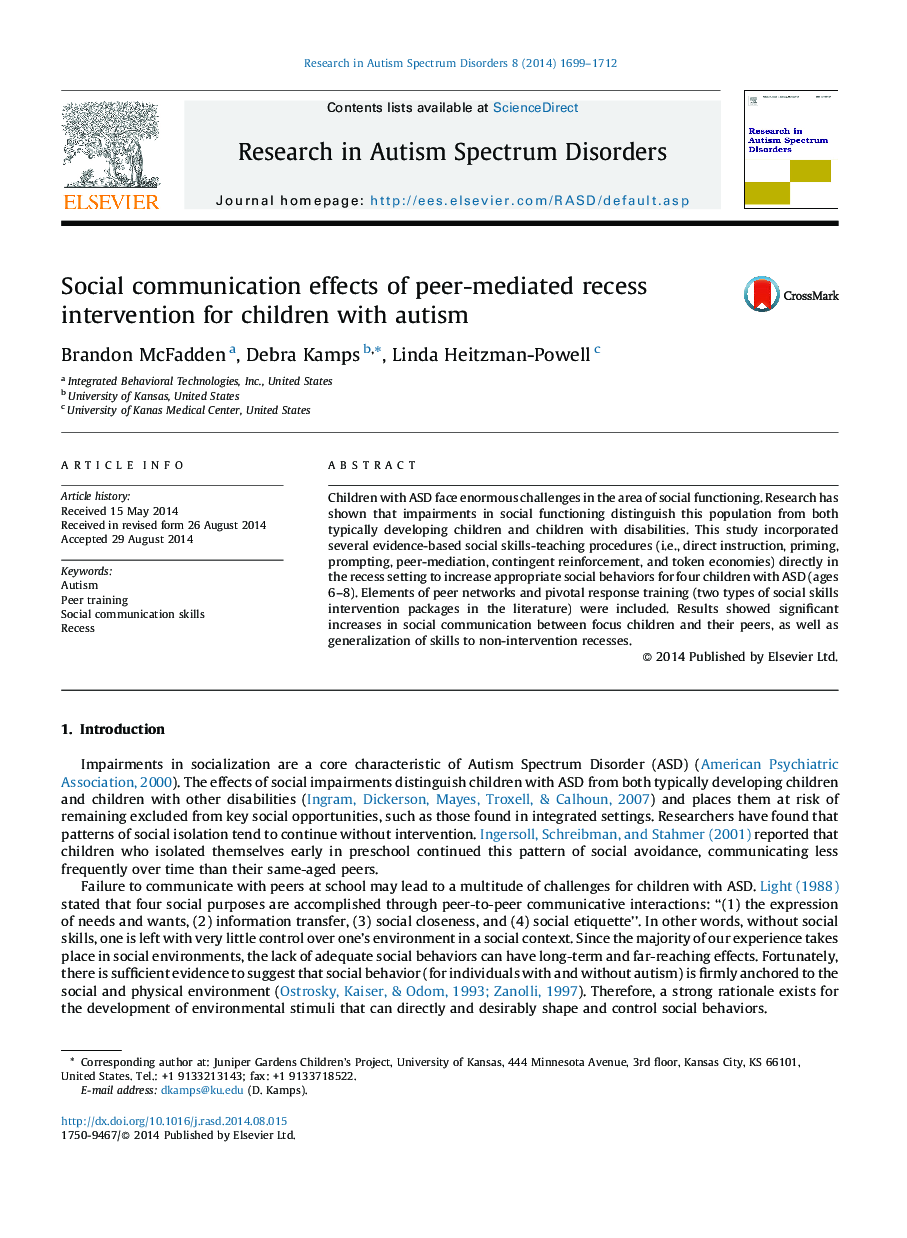| Article ID | Journal | Published Year | Pages | File Type |
|---|---|---|---|---|
| 10317119 | Research in Autism Spectrum Disorders | 2014 | 14 Pages |
Abstract
Children with ASD face enormous challenges in the area of social functioning. Research has shown that impairments in social functioning distinguish this population from both typically developing children and children with disabilities. This study incorporated several evidence-based social skills-teaching procedures (i.e., direct instruction, priming, prompting, peer-mediation, contingent reinforcement, and token economies) directly in the recess setting to increase appropriate social behaviors for four children with ASD (ages 6-8). Elements of peer networks and pivotal response training (two types of social skills intervention packages in the literature) were included. Results showed significant increases in social communication between focus children and their peers, as well as generalization of skills to non-intervention recesses.
Keywords
Related Topics
Life Sciences
Neuroscience
Behavioral Neuroscience
Authors
Brandon McFadden, Debra Kamps, Linda Heitzman-Powell,
